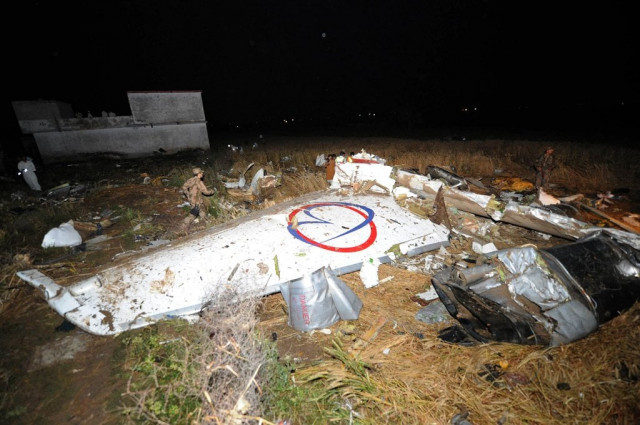Bhoja air crash report
The pilots lacked training, there were procedural errors and the air worthiness of the plane raises questions.

Rules must be adhered to, checks conducted to ensure companies do not cut corners and pilot training looked at so that the skies can be made safer. PHOTO: AFP
What is more, the report mentions the pilot was not trained to handle this situation, his FO had not received simulator training for the particular aircraft they were flying and the CAA had not been briefed that the plane was an advanced version of the Boeing 737-200, which needs specialised handling. There may also be some cause for concern about the airworthiness of the aircraft, used by British Air till 1999, then sold to South African Airways, which retired it in 2010. Problems pointed out when Bhoja purchased it after this were reportedly fixed.
The account of what happened on that flight, which crashed near Islamabad killing all who chose to fly aboard it that day, however, offers up many lessons. The pilot made judgment errors in choosing not to divert the plane. The pilots lacked training, there were procedural errors and the air worthiness of the plane raises questions. To safeguard passengers, we need better safety. This must be enforced for all airlines and especially, new, private airlines taking to the skies given the July 2010 Airblue crash and the Bhoja disaster. Rules must be adhered to, checks conducted to ensure companies do not cut corners and pilot training looked at so that the skies can be made safer. The CAA must take the lead in this and ensure disasters are avoided by putting in place tougher mechanisms to govern the planes which move from any of our airports and to ensure those flying them possess the training they require.
Published in The Express Tribune, January 24th, 2014.
Like Opinion & Editorial on Facebook, follow @ETOpEd on Twitter to receive all updates on all our daily pieces.















COMMENTS
Comments are moderated and generally will be posted if they are on-topic and not abusive.
For more information, please see our Comments FAQ